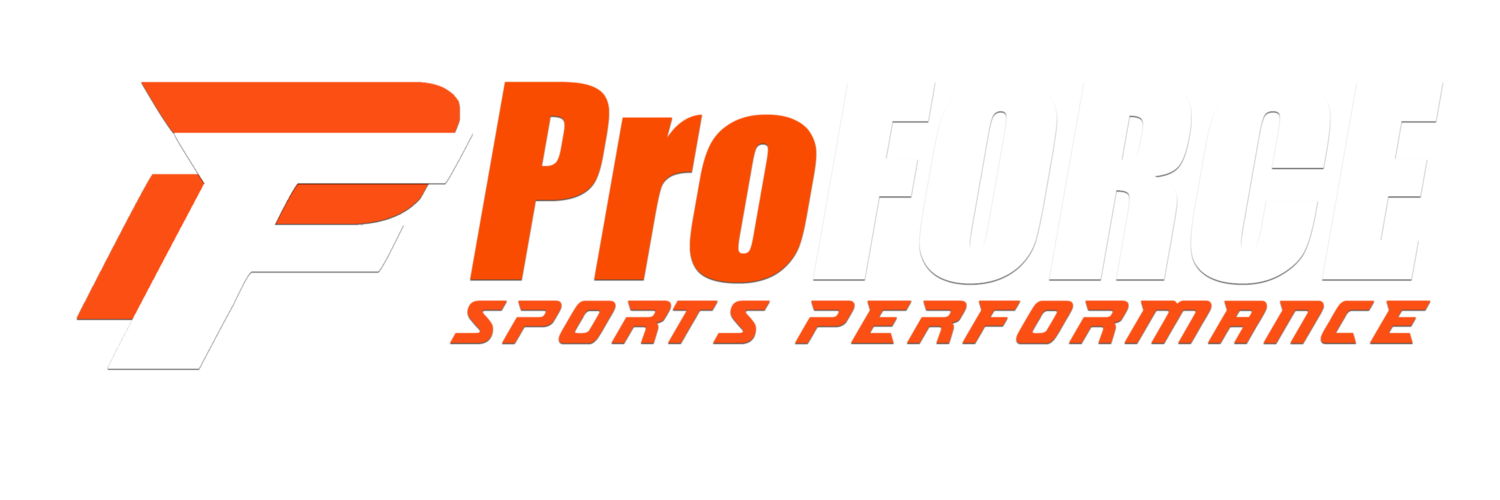Being a student-athlete can feel like a constant juggling act. Between classes, practices, games, homework, and training sessions, the demands on time and energy are high. At ProForce Sports Performance, we understand the unique challenges that student-athletes face and are here to help with strategies to stay on top of everything without burning out. Here’s our guide to balancing school, sports, and training effectively.
1. Prioritize Time Management
Time management is the cornerstone of balancing school, sports, and training. A well-organized schedule can help keep priorities clear, reduce stress, and ensure that nothing falls through the cracks. Try using a digital calendar or planner to map out your week. Block off time for each commitment—classes, practices, training sessions, study time, and even downtime.
Tips for Time Management:
Weekly Planning: Every Sunday, review the upcoming week to identify key deadlines and events.
Set Reminders: Use apps or alarms to remind yourself of practice times, deadlines, or study sessions.
Adjust as Needed: Flexibility is important! Be willing to adjust your schedule when new commitments arise.
2. Set Realistic Goals
Setting goals can help keep you motivated and on track, but they should be realistic and achievable. Goals for academics, sports, and training should align with the time and energy you have available. Break down large goals into smaller, manageable steps, and celebrate your progress along the way.
Example of Goal Setting:
Academic Goal: Improve your grade in math by dedicating an extra 30 minutes, three times a week, to studying.
Athletic Goal: Improve sprint speed by committing to two speed-focused workouts each week.
Training Goal: Increase flexibility with daily stretching after practice.
3. Focus on Quality over Quantity in Training
While it’s tempting to add extra workouts to improve performance, quality matters more than quantity. Focusing on targeted, high-quality sessions will get you further than packing your schedule with endless training. Consider what aspects of your sport and physical development need the most attention—whether it’s strength, agility, endurance, or recovery.
Tips for Efficient Training:
Plan Your Sessions: Design each session to target specific skills or muscle groups.
Listen to Your Body: Overtraining can lead to burnout and injuries, so make rest and recovery a priority.
Work with a Coach: Coaches can help tailor workouts to your sport, allowing you to maximize results in less time.
4. Create Study Habits that Stick
Schoolwork is just as important as sports performance, but keeping up with academics often requires smart study habits. Developing a routine can make it easier to complete assignments, retain information, and perform well on tests. Use your available time wisely, and consider studying in short, focused bursts (25-30 minutes) with short breaks in between.
Study Habits to Try:
Designate a Study Space: Set up a distraction-free area that helps you focus.
Use the Pomodoro Technique: Study in focused blocks with timed breaks to maintain energy.
Prioritize Difficult Tasks First: Tackle challenging subjects when your energy is highest, which is often earlier in the day.
5. Fuel Your Body with Proper Nutrition
Proper nutrition fuels both your mind and body. Eating balanced meals that include protein, complex carbohydrates, and healthy fats can provide the energy you need for sports, school, and training. Hydration is equally important; drinking water throughout the day will help maintain focus, improve endurance, and support recovery.
Simple Nutrition Tips for Student-Athletes:
Plan Ahead: Prepare healthy snacks and meals ahead of time to avoid relying on quick, processed foods.
Stay Hydrated: Aim for water over sugary drinks, especially around training and practice sessions.
Listen to Your Body: Eat when you’re hungry and focus on foods that give lasting energy, like fruits, veggies, and lean proteins.
6. Get Enough Sleep
Sleep is one of the most crucial elements for any athlete, as it aids in muscle recovery, mental focus, and overall performance. Student-athletes often need more sleep than the average person, as the demands on their bodies and minds are greater.
Sleep Tips for Student-Athletes:
Establish a Routine: Go to bed and wake up at the same time each day, even on weekends.
Create a Relaxing Bedtime Routine: Avoid screens at least 30 minutes before bed and try calming activities like reading or stretching.
Nap Smartly: Short naps (20-30 minutes) can provide a quick energy boost if you’re sleep-deprived, but avoid longer naps that can disrupt nighttime sleep.
7. Practice Mindfulness and Stress Management
Student-athletes often experience high levels of stress, from academic deadlines to performance pressure on the field. Incorporating mindfulness techniques like meditation, deep breathing, or visualization can help calm the mind, reduce anxiety, and keep you focused.
Quick Stress Management Tips:
Deep Breathing Exercises: Inhale slowly for 4 seconds, hold for 4 seconds, and exhale for 4 seconds to calm your nerves.
Visualization: Imagine yourself succeeding in your sport, staying calm, and performing at your best.
Practice Gratitude: Writing down three things you’re grateful for each day can help shift focus away from stressors.
8. Seek Support from Coaches, Teachers, and Family
Student-athletes have a lot of responsibility, and having a strong support system can make a world of difference. Don’t be afraid to lean on coaches, teachers, and family members when you need help or guidance. They can offer support, provide advice, and even adjust schedules to help you manage your commitments more effectively.
Balancing It All
Balancing school, sports, and training isn’t easy, but with the right strategies, you can stay on top of your game in all areas of life. At ProForce Sports Performance, we’re here to support student-athletes in reaching their full potential. Remember, it’s not about perfection—it’s about steady, healthy progress. By prioritizing time management, setting realistic goals, focusing on quality training, and nurturing your mind and body, you’ll be set for success both on and off the field.
Ready to take your performance to the next level? Contact us at ProForce Sports Performance to learn more about our programs designed specifically for student-athletes!

